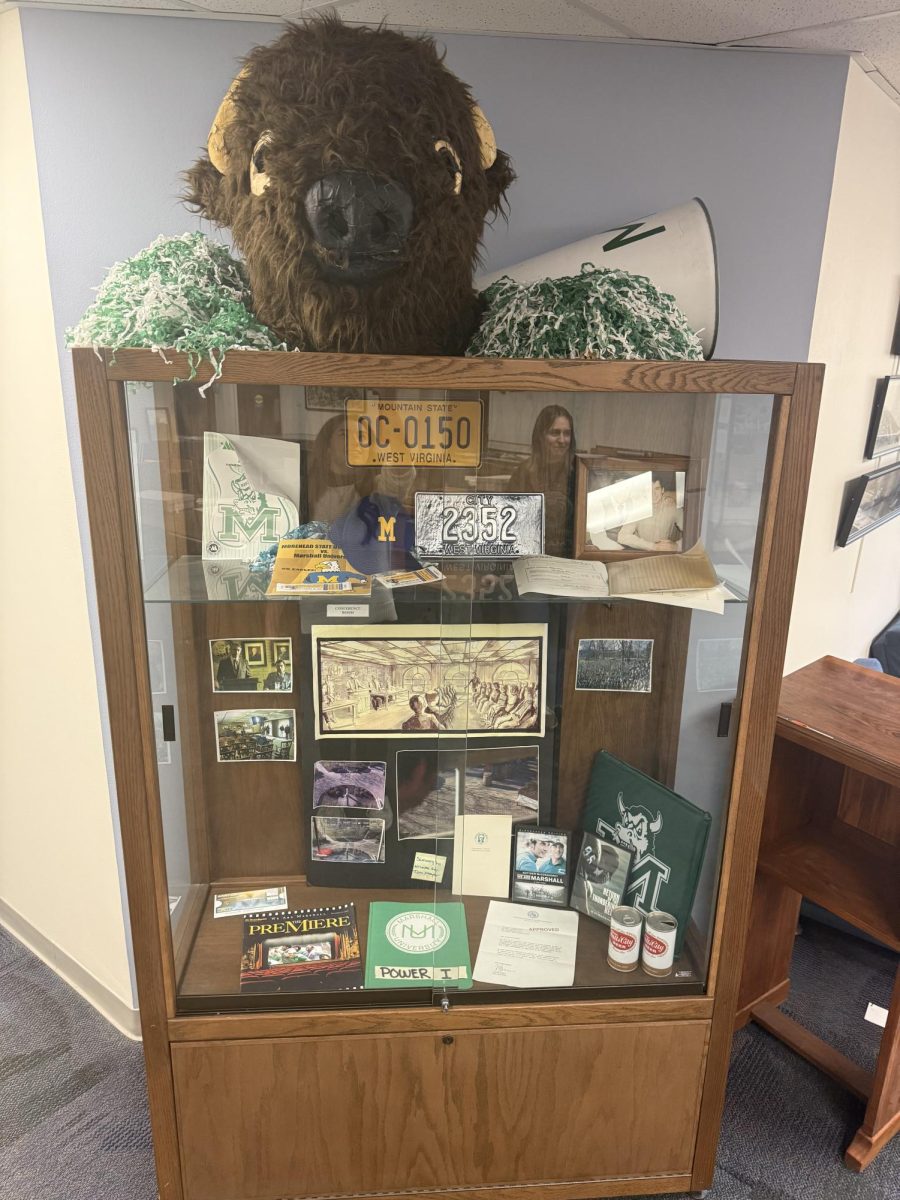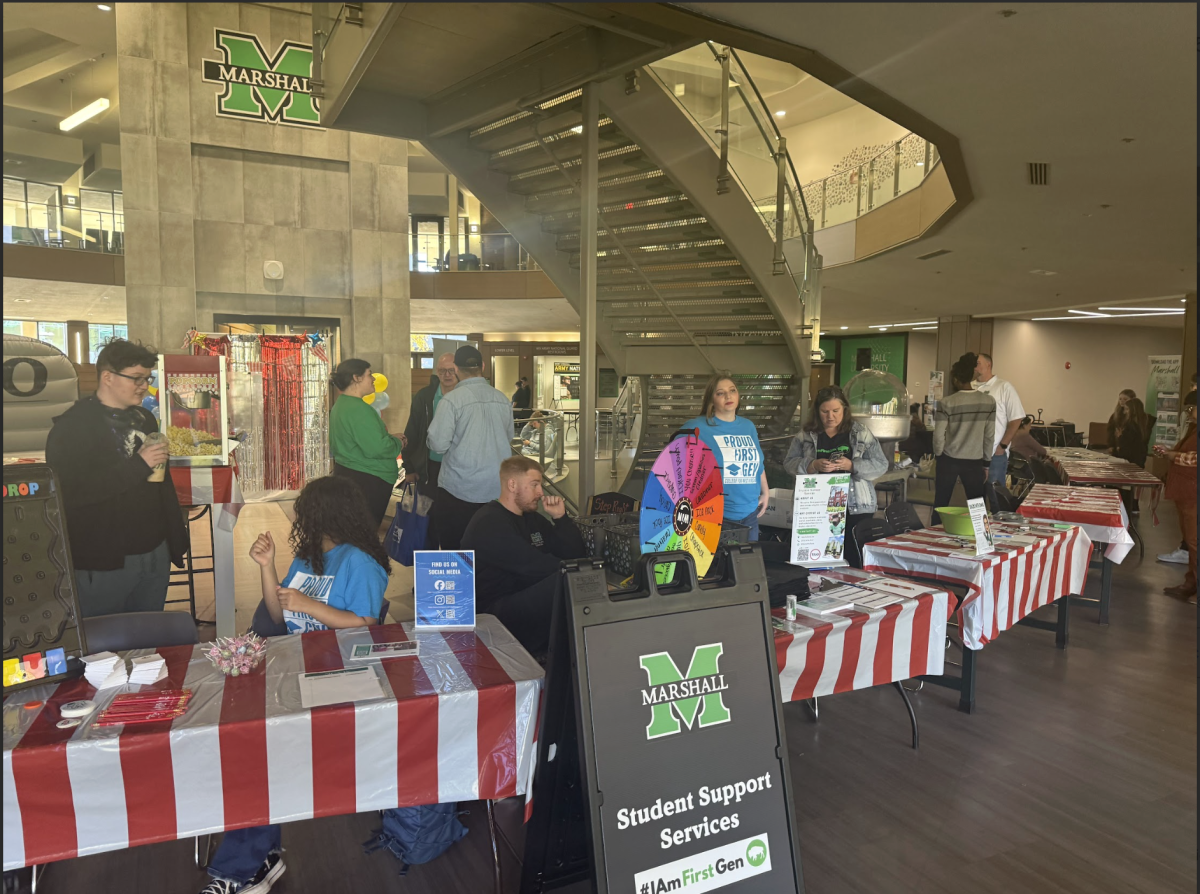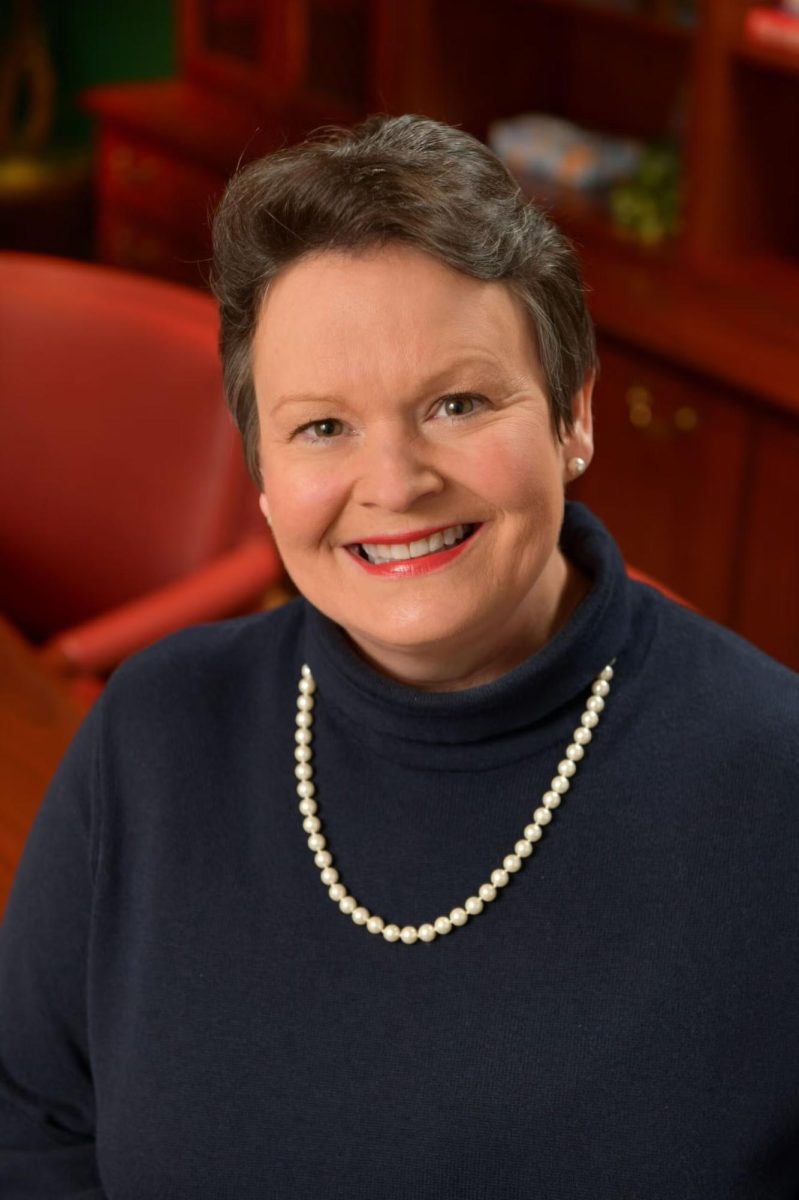You don’t realize what is lost until it isn’t written down, a poet laureate said at the A.E. Stringer Visiting Writers Series on Wednesday, April 16, adding, “We don’t have to publish; you need to write them down now and give them meaning.”
The Visiting Writers Series featured Kari Gunter-Seymour, Academy of American Poets Laureate Fellowship recipient and pillars of prosperity fellow for the Foundation for Appalachian Ohio, for the final event of the season.
“We need to write this down. We could end up really needing this, you know,” Gunter-Seymour said. “It’s really an obligation for all of us to do this.”
Gunter-Seymour shared poems from a handful of her published works, which included works about former rollercoaster “The Beast,” stink bugs, the feeling of being Appalachian and other ideas that went into her creative process.
Assistant professor Sara Henning said the series has been an incredible thing for the students at Marshall University and an exceptional learning experience.
“It is my belief that bringing writers to campus creates transformative learning experiences for our students,” Henning said. “Not only can the students fall in love with a writer’s words and heart, but they can come to understand the flesh and blood of a person who created something. A student can hear a writer’s words, rhythm and tone and their sentences – their minds – as if they were not to be heard.”
Gunter-Seymour said the poems she wrote were a way for her to figure out things that had deeply been buried within her. She said she had to sit down and journal and focus on the things within her to find relief.
“It’s more like therapy for me,” Gunter-Seymour said. “Almost every poem I’ve written is something that relieves me of something that has been burned into me.”
Gunter-Seymour said these poems went far back within herself and dealt with issues she had not thought about since she was a little girl.
“I realized that those were things that I put far away – far away inside of me because I didn’t know how to figure them out and deal with that when I was that age,” Gunter-Seymour said. “I tucked them deeply away, and here I am all these way years later, and they just came pouring out of me. I had to write about them because I was ready to understand what had happened to me or my friends and how we hurt other people or how they hurt us, and we weren’t allowed to say.”
Henning said the power words have is amazing. She said words can change the lives of those around us.
“A student can realize that a human body in the life – in a story, difficult things, sorrows and ecstasy can create words that have the capacity to change, and even save, lives,” Henning said. “Perhaps, more importantly, a student may realize the work of their own words feel a sense of inspiration and motivation that they one day can too be on stage and sharing words that inspire their own generation.”
Soleil Woolard can be contacted at woolard3@marshall.edu.



















